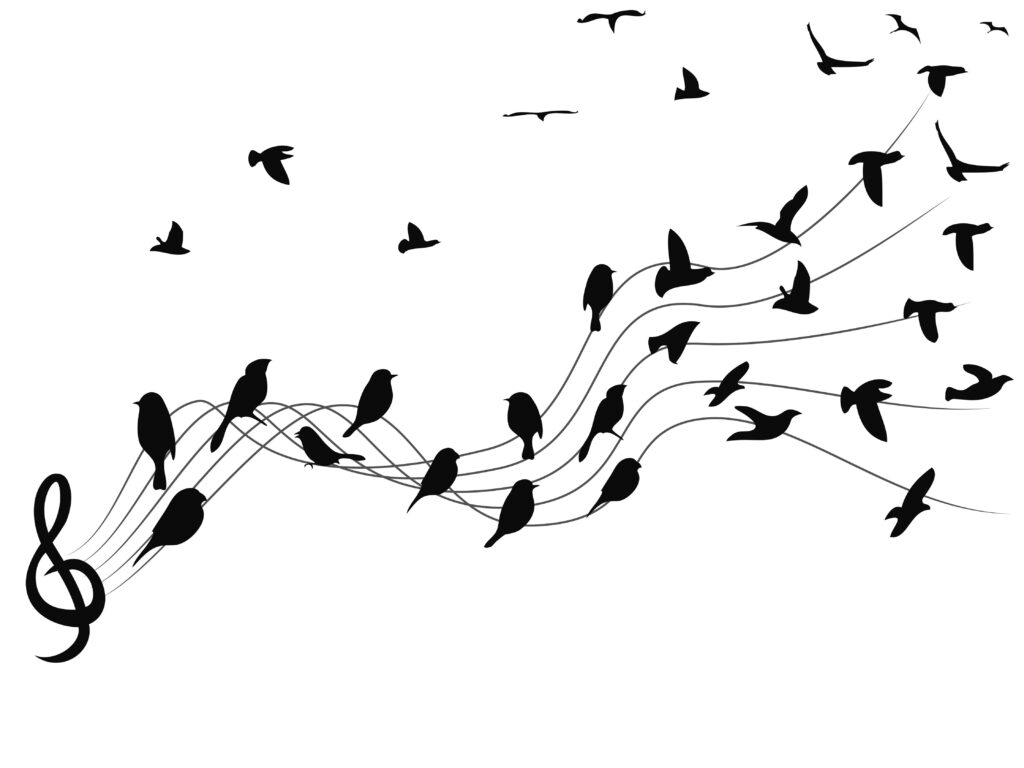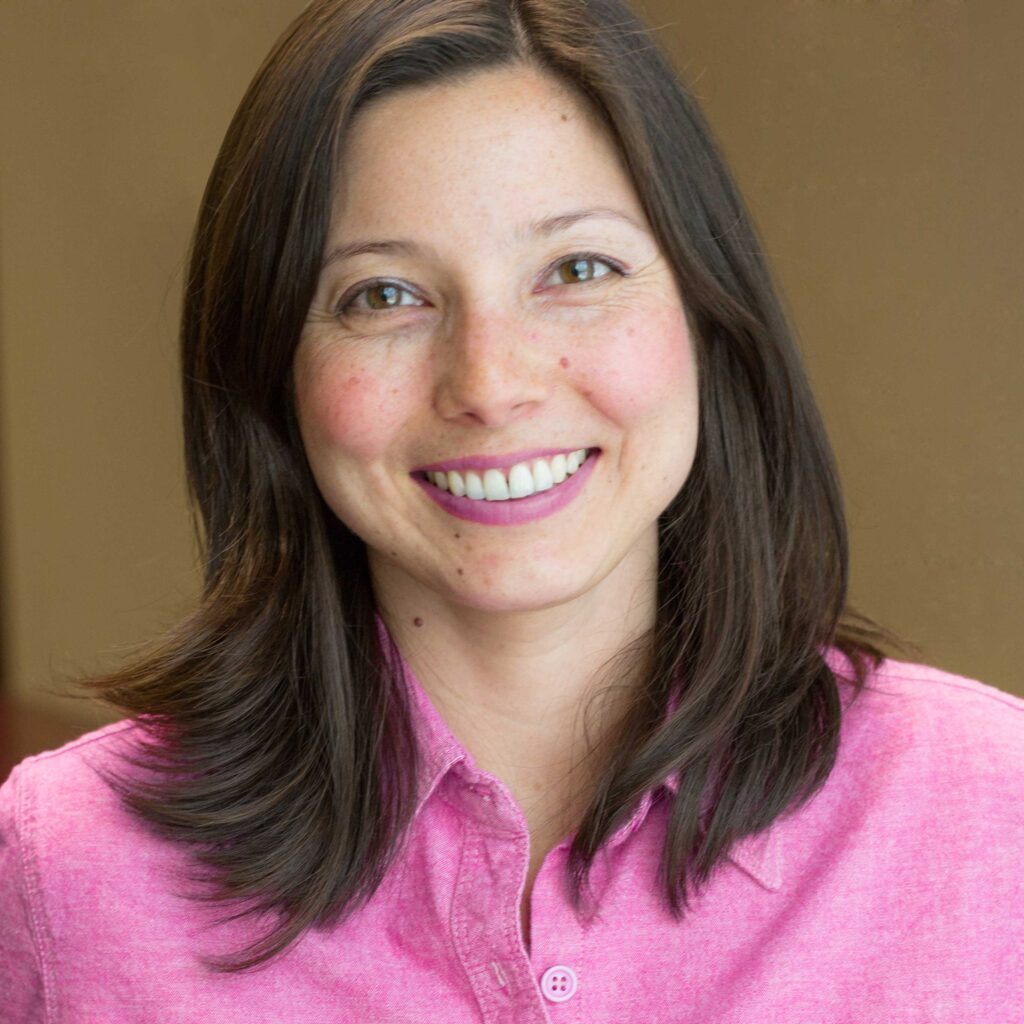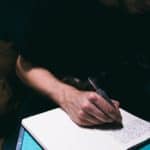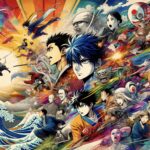Bird Without a Song
– Fierce Fiction by Jaclyn Kar Yin McLachlan –

I recently converted some old VHS footage to digital files and, for the first time in decades, watched me and Hana lip-sync to Sinéad O’Connor’s “Nothing Compares 2 U.” We were tweens unleashed at Canada’s Wonderland, spending our allowance on Super Star Live, a karaoke kiosk that recorded video of you playing instruments and singing your chosen song.
It was assumed and unquestioned that Hana would be the lead singer, and I was told to be the drummer. Instruments were arranged on stage, a tall microphone in the centre blocking the drum kit in the back. In the video, Hana is dancing around, crooning the opening line to the song and I’m visible only in the cracks between her arms and her body, beneath her armpits as she cups the mic, drumsticks raised, eagerly anticipating the chorus. I pause the video here, capturing our friendship in a single frame.
We first met in the early hours of high school. Her extended hand was a lifeline, an offer of resuscitation. I reached out, and in the few seconds that we shook hands, I felt her dive into me and poke around and pull out the lonely, pull out the fear, pull out the sad. Because of her, I snapped into myself and breathed air into a body that I remembered.
We followed the same recipe: Hana cooked up a scheme and I ate it all. In the beginning, it was harmless mischief like climbing trees and spying on people below. Then it became setting off fireworks and starting small fires on the school’s grounds.
We got driver’s licenses, and I found myself an accomplice to her unnerving speed. “We’re maniac drivers!” she would yell, laughing hysterically as we bombed down the highway, lifting her foot from the gas only after passing the point where we would certainly die in a crash, like a valve releasing. She had armed herself with a few critical connectors from Home Hardware and the working knowledge of how to hotwire a car, “just in case.”
Sometimes I created the drama. Once, at a McDonalds with Hana, I popped out my retainer to eat my burger and forgot to retrieve it from my tray before dumping the contents into the trash. Two steps outside of the restaurant, my tongue cased my naked teeth, and I went pale. My world was not one where retainers were replaced. I tearfully stammered my misfortune to her, who whirled around and stalked inside the establishment, whereupon we learned that every trash bag in the restaurant had just been thrown into the dumpster out back. Grimly, she rolled up her sleeves. Seconds later, we were surfing oily bags of garbage in a monstrous container. Luckily, the bags were see-through. I thought Hana was pulling my leg when she said, “There’s your Big Mac wrapper snuggled up to both my Quarter Pounders,” but she was right. After rooting around in the bag, she held up my retainer in triumph, and I looked at her like a goddess.
Her mother’s death was an invisible shroud. It had happened suddenly when Hana was a child, although the exact circumstances wouldn’t be revealed until she turned eighteen. This little girl had learned to grieve in the spaces between what she knew, which was very little, and to let music block out the ticking of the clock that sounded louder as she grew older. She had been gifted with effortless talent and perfect pitch, and as long as she followed the notes, she stayed out of trouble.
I knew her inclinations were unusual. I had never met anyone who needed to feel things as desperately and urgently, and my reciprocation was implicit unconditionality. Each of these schemes revealed a different childlike vulnerability in her that I would die to protect. After every adventure, she would whip out “The Nutbar Book,” a tiny chapbook she had stapled together in the early days, and feverishly write down what we had done. As if I would ever forget. Although what I remember most all these years later is her burning need to record us. To write down these truths. Testament that they happened, but far more importantly that my being part of it meant she too had existed.
By our final year, Hana was just coasting along the razor’s edge, hoping not to cut herself. Hana’s eighteenth birthday loomed, but choosing to spend it at a cabin with our friends, she kicked the peanut down the road a little longer.
When she returned to school after the Christmas holidays, she was unhinged. She’d learned that her mother had struggled with bipolar disorder for decades — which fit some of the strange puzzle pieces of Hana’s youth into place — and been found at the bottom of the plunge pool at Niagara Falls that day she didn’t come home. As much as I tried to help her, I was woefully unequipped to triage the deep lacerations that had opened in my friend. She pulled away from me.
With a few weeks left in the school year, she surfaced.
“It’s almost certain that I have it too,” she said. “I know what the disease will do to me, and I don’t see how my fate will be any different than my mother’s.”
Her eyes brimmed, she who never cried. “My brain’s going to become like Swiss cheese. I won’t remember us.”
“Yes, you will,” I whispered. “I’ll be your memory.”
I flew around her, helping her study for finals, distracting her. But the solid ground that we had taken for granted had shifted, and she and I were never on equal footing thereafter.
Hana’s personal pied piper enchanted her just enough to keep her out of harm’s way, luring her through university to a degree in music composition, cum laude. Reluctant to let go of their superstar, the university awarded her a fellowship in the form of a one-year research placement.
Taking liberties, Hana chose to spend the year Down Under learning the didgeridoo. I grinned at her funny, newsy emails from the windowless corner of my graduate school office, living vicariously through her as she drank and surfed her way across the country. Nine months in, her emails became sporadic, nonsensical in some places. She was convinced that she was in danger, that someone was trying to kill her. She only had a couple months left and was trying to ride it out, but the paranoia was oppressive. She changed apartments to shake off the ominousness, moving locations four times in a month, and then I got a last email from Australia
saying she was coming home. And then she went dark.
Weeks later, I received a cryptic note. Between the lines, I understood that there had been a problem with her return to Canada, that the police had been involved, and she had been in a psychiatric ward ever since. But not to worry, because she had plans to spring the joint.
She found an apartment in the city, and rented a small rehearsal space at a local college, where she taught music lessons and wrote scores for community orchestras. The story of her Australia to Canada leg was slippery, but I pieced together that she had been hearing voices, one that told her to destroy a Starbucks booth in the arrivals area of the airport and the other to steal a car, so she did both. She was arrested, diagnosed with bipolar disorder, and then sent to a psych ward for electroconvulsive therapy. The airport incident was her first psychotic episode, but it could also be her last, she informed me cheerily, as the doctors had told her that psychosis was treatable.
We mapped an ambitious list of career goals, but she was hampered at the gate. She would land an esteemed position teaching music, which would inevitably stress her out, throw her system out of whack, and cause an episode. Sometimes, unable to shake the numbing dullness and flattened emotion brought on by her medications, she would attempt to manage the disease on her own and stop taking her meds. In either case, she would end up in a psych ward. Months would pass while she received treatment and recovered, and then start the cycle again. Every reboot set her back emotionally, financially, and psychologically, and distanced her further from her peers. Once unsinkable, she weathered hits constantly when social media showed her friends pairing off, getting promotions, buying houses, tanning on beaches in Spain.
I learned to manage the eerie radio silence that her episodes brought with them. With surgeon-like precision, I spliced together the circumstances of her episodes to create a rubric for our expectations; pushed to the brink by stress and/or chemistry, she would lose control over her thoughts and actions, the melody in her head became a deafening polyphonic fugue, and the only way to release it was to act out extreme and illegal scenarios. After every episode, her silence lasted a little longer, a creeping pattern that watched me from the dark. We were charged by a similar current, the fear of losing her mind buzzing at her and the fear of losing her pulsing through me.
Attempting to outrun the disease, Hana hopscotched around the country and communed with nature but still landed in treatment centres. I visited her at many of them. When she had telephone privileges, she called me often, and I became acquainted with her daily appointments and medications. I never knew when she would be discharged. The calls stopped abruptly and time slowed down.
Once, when she was admitted to a mental health centre in Toronto, I brought her a hot lemon drink from Chinatown. She had never tasted anything more delicious. I got a frantic call from her the next morning, asking for more of it, saying that it was an elixir that would fix her. I brought it to her each day for the next three days, and on the fourth day, unprompted by her call, I showed up with the drink in hand. She was gone, discharged the evening before. I heard weeks later that she had been roaming the streets for days, homeless, so now it’s reflexive; when she disappears, I look into the face of each person asking for change or sleeping on the sidewalk to see if it’s her.
I promised that I would be her memory, but who do you remember to when that person is not here? I would recycle our stories to her, over and over again, and sometimes she would learn them and remember them at the same time.
Forty marked a new decade for both of us, a threshold for decisions that we never looked back on. I was on fire and moving upward, and Hana was razing her world and charring the earth behind her. Having endured years of lies, ranging from little white ones to whoppers, embarrassing public outbursts, petty crimes, and the odd court trial, those in her inner circle had pulled away one by one. Any who remained were burned even worse. For some reason I was immune, until one day when I wasn’t.
We had met for lunch, and it was one of those visits that reminded me of my old best friend; she was funny, engaging, charming with the waitstaff. Those were the precious moments that I lived for because they reminded me of what used to be real. So positive was our hangout, and so intense my nostalgia, that I agreed to meet her again after work for dinner.
I could tell something had sharpened when we rejoined. She demanded that we shop before dinner and stomped into a nearby gift emporium. By the time I reached her, numerous items were piled onto the counter, things like snow globes and windchimes, overpriced memorabilia that she didn’t need. As the charges approached $500, money that I knew she didn’t have, I put my foot down. Suddenly, where my friend stood was a demon spitting the most hateful things I had ever heard: that I was the most despicable person she knew, the biggest fucking loser, and the best thing I could do for humanity was to rot in hell. In shock, I ran out of the store and all the way home.
Months passed. The ice melted, and we continued on. Similar outbursts arose and each time I contemplated ending our friendship but forgave her even quicker. She was influenced by a mental illness and battling the cumulative hostility and bitterness that comes from living a life in chains while everyone else runs free. I learned that the sooner we could get past the bad times, the more space it created for good times to happen. And they did. My precious glimpses through the keyhole at how we used to be still occurred, although the aperture was shrinking and pulling farther away.
Hana rode through the 2020 pandemic as gracefully as she could, but by July she was showing signs of stress. The restrictions were grinding her down and she worried that she might slip, her code for having an episode. We spent time outside, near nature, and I bought her food, as I often did to relieve the pressure on her bank account, but she was noticeably worse by August.
A week later, in early September, she called me from her apartment. The cops were at her door, but she would be damned if they took her alive. I tried to cool her down. The police identified themselves and calmly asked her to open the door, saying she had done nothing wrong, but they had received a worried call and wanted to confirm she was okay.
“Over my dead body!” my friend screamed and then asked me what she should do and didn’t listen to my answer. And so it went with them ordering her to come out and Hana shouting obscenities while I tried to be heard through the line of a phone that had long been forgotten. And then as both Hana and the police reached a fever pitch, a thunderous bang sounded and the line went dead.
I replayed the call in my head, haunting myself on a loop, but clinging to the belief that I still felt the current running between us, that she was still with me on this earth. A single photo that she posted to her Instagram account defibrillated my heart into beating again. It was the façade of a mental health centre I knew well.
In the music video, Hana leans into the second verse, singing about the loneliness of a songless bird, and I nod along to the beat, but also because it’s true. The music in my life is missing.
We are not so different now. Hana is still centre stage, and I’m visible only in the cracks beside her, my drumsticks raised, eagerly anticipating the chorus. It’s been eight hours and 192 days since she took her love away, but I will be right here when she comes back.

About the Author – Jaclyn Kar Yin McLachlan
Jaclyn Kar Yin McLachlan is the founder of MyWineCanada.com, a popular online wine and spirits store. She is a regularly published food and wine writer for lifestyle magazines and a fiction writer based in Toronto.
Did you like this story by Jaclyn Kar Yin McLachlan? Then you might also like:
Danny’s Song
Eliminating Rahiem
Wanderlust
Pieces of You
Like reading print publications? Consider subscribing to the Dreamers Magazine!

Dreamers Writing Prompt Generator
Experience the power of simplicity with our unique writing prompt generator. Designed for writers who crave spontaneity and surprise, our tool delivers one meticulously crafted prompt at a time.

Top 25 Most Popular Manga Right Now
If you’re searching for the most popular Manga right now, this top 25 list is the ideal starting point, whether a beginner or enthusiast.